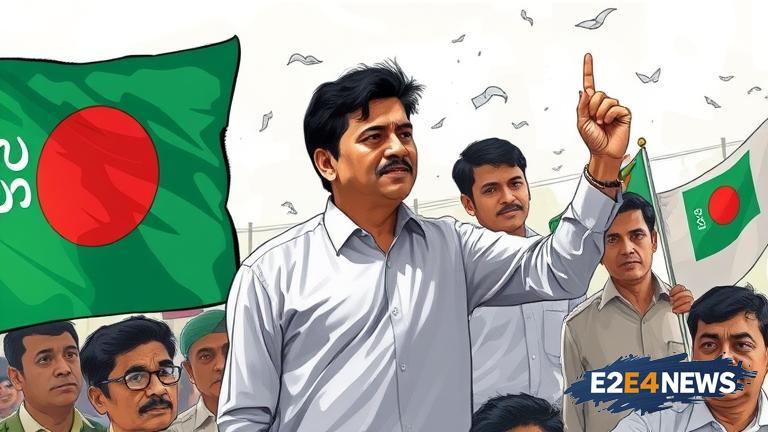Bangladesh is gearing up for its highly anticipated national elections, scheduled to take place in February. The country’s Election Commission has announced the election date, paving the way for a crucial contest that will determine the nation’s leadership for the next five years. The ruling Awami League, led by Prime Minister Sheikh Hasina, is seeking to secure a fourth consecutive term in office. The party has been in power since 2009 and has implemented various development projects and policies aimed at improving the lives of Bangladeshi citizens. However, the opposition parties, including the Bangladesh Nationalist Party (BNP), have expressed concerns over the fairness and transparency of the electoral process. The BNP, led by former Prime Minister Khaleda Zia, has been critical of the government’s handling of various issues, including corruption, human rights, and press freedom. The party has also accused the ruling party of suppressing opposition voices and restricting freedom of speech. Despite these challenges, the Awami League remains confident of its chances, citing its development record and popularity among voters. The party has implemented various initiatives, including poverty reduction programs, infrastructure development, and social welfare schemes, which have contributed to the country’s economic growth and improved living standards. However, the opposition parties argue that the government’s development agenda has been marred by corruption and mismanagement, and that the benefits of growth have not been evenly distributed. The election campaign is expected to be intense, with both sides engaging in heated rhetoric and accusations. The international community, including the United States, the European Union, and the United Nations, has called for a free and fair election, emphasizing the importance of ensuring the integrity of the electoral process. The Bangladesh Election Commission has assured voters that it will take all necessary measures to ensure a credible and transparent election. The commission has also announced various measures to prevent vote rigging and ensure the security of voters. Despite these assurances, there are concerns over the potential for violence and intimidation during the election period. The opposition parties have accused the ruling party of using its muscle to suppress opposition supporters and restrict their freedom of movement. The government has denied these allegations, stating that it is committed to ensuring a peaceful and orderly election. As the election approaches, the international community is watching closely, with many observers expressing concerns over the potential for instability and unrest. The outcome of the election will have significant implications for Bangladesh’s future, with the winning party set to shape the country’s development agenda and policies for the next five years. The election will also be closely watched by neighboring countries, including India, which has significant economic and strategic interests in Bangladesh. In recent years, Bangladesh has emerged as a key player in regional affairs, and its relationships with neighboring countries are likely to be influenced by the outcome of the election. The country’s economic growth and development have also made it an attractive destination for foreign investment, and the election outcome will be closely watched by investors and businesses. Overall, the February elections in Bangladesh are set to be a crucial test of the country’s democratic institutions and its commitment to free and fair elections. The outcome will have significant implications for the country’s future, and the international community will be watching closely to ensure that the election is conducted in a credible and transparent manner.
